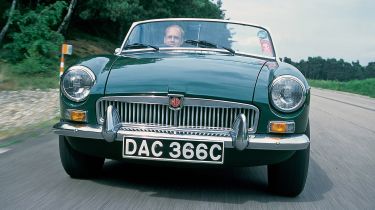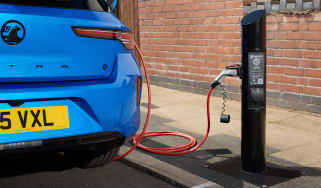Registering a restored or modified car just got easier – here’s why
Under new DVLA rules, modified or restored cars can maintain their identities even after significant work has been carried out

A raft of new changes have been announced for the UK’s car registration process which will give drivers greater freedom and autonomy when it comes to registering modifications and repairs to their pride-and-joy.
Set to come into effect on 28 August 2025, the DVLA has announced that drivers will no longer have to notify the authorities of any like-for-like repairs or restorations to their car, provided that the end product looks identical to how it did when it left the factory.
While drivers historically haven’t needed to inform the DVLA of every small change they make – you don’t need to update your V5C after adding a spoiler or new set of wheels, for example – UK rules previously stated that drivers must flag any significant repair or replacement work, particularly to a car’s frame or bodyshell. Now, however, there’s no requirement to do so, provided the damaged parts are swapped for identical ones.
Significant structural modifications
Vehicles undergoing significant structural modifications – such as having the monocoque or dimensions altered (i.e. made significantly wider or turning a coupe into a convertible, for example) – will now also be able to retain their original Vehicle Identification Number (VIN) and registration. In this instance, however, the DVLA will need to be contacted.
The same goes for electric restomodding – a practice in which the powertrain of a classic car is swapped for one that’s fully zero emissions. While the DVLA will continue to require that you notify it of a fuel type change, the vehicle in question will be able to retain its original identity if it changes from a petrol to an electric car.
All of the above counts for vehicles of all ages – not just classic cars – with full guidance set to be announced once the rules come into effect. That said, drivers will still be required to notify the DVLA – as well as their insurance provider – of changes to things such as their car’s engine displacement, number of seats and colour.
Labour Minister for the Future of Roads, Lilian Greenwood said: “We know how much love, time and effort goes into keeping classic cars – and we’re right behind the community.”
“These changes are about cutting red tape and making life easier for enthusiasts, whether you’re restoring a vintage gem or converting it to electric,” said Greenwood. “It’s all about celebrating the UK’s amazing motoring heritage and helping the industry thrive well into the future."
DVLA cost cutting?
Of course, it’s worth mentioning that while this will certainly save classic car restorers and enthusiasts some time and headaches while also preserving historic vehicle identities, the move could also be viewed by cynics as a DVLA cost-cutting measure given that it’ll ultimately mean fewer registration alterations to process.
Nevertheless, Dale Keller, the CEO of the Historic and Classic Vehicle Association said the DVLA should be “applauded” for the decision, calling it a “testament to the hard work of the HCVA, and others, that the government has listened and acted with pragmatic changes that place the retention of historic identity at the forefront of registration policy, a move that will be welcomed by all historic vehicle specialists, owners, and historians.”
Did you know you can sell your car through Auto Express? We’ll help you get a great price and find a great deal on a new car, too.





